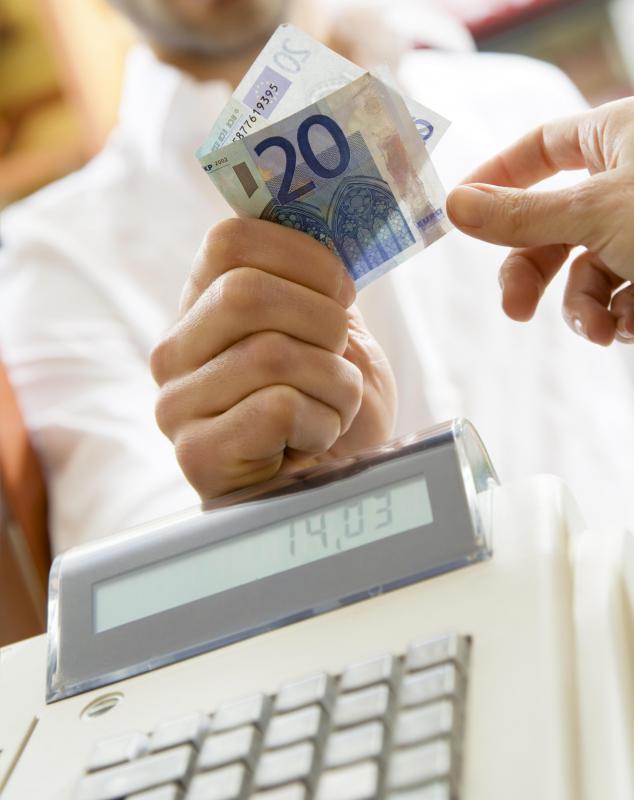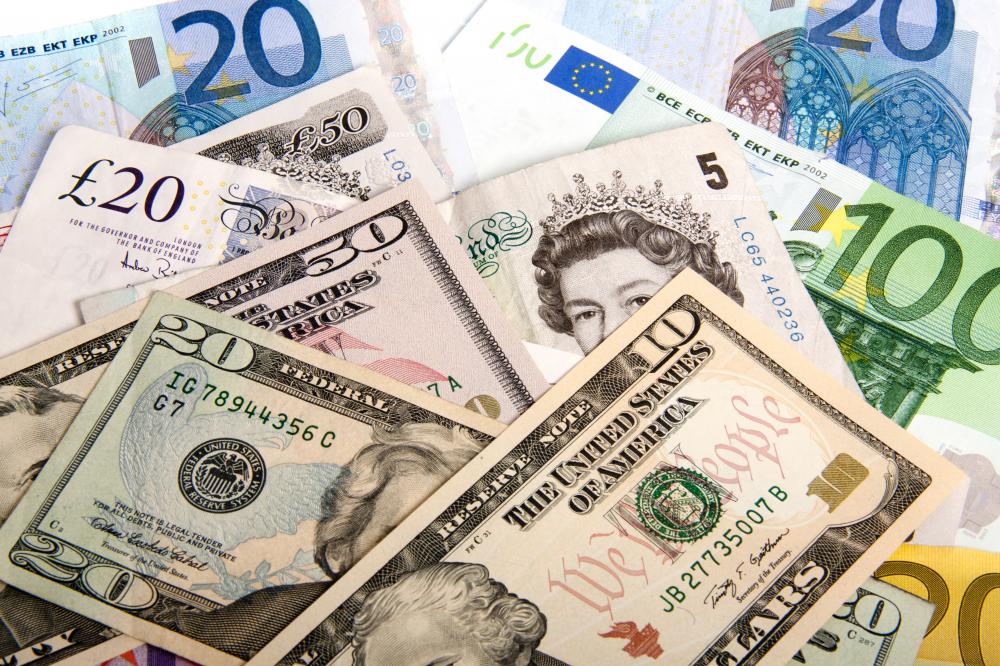At WiseGEEK, we're committed to delivering accurate, trustworthy information. Our expert-authored content is rigorously fact-checked and sourced from credible authorities. Discover how we uphold the highest standards in providing you with reliable knowledge.
What is Hard Currency?
A hard currency, also called a strong currency, is currency that is used by people in more than one area of the world, because it is widely accepted in exchange for goods and services. This is because it is seen worldwide as a reliable store of value. Hard currency must also be one that comes from a country which enjoys political and economic stability. Short-term stability in value and liquidity in foreign exchange markets are other traits typical of a hard currency. In many ways, the concept of a hard currency is related to that of a reserve currency.
In the 20th century, the U.S. Dollar and the British Pound emerged as the world's foremost hard currencies. Also, the German Deutschmark was considered to be one of the best hard currencies before it was replaced by the Euro. Apart from being useful for international exchange, hard currency can also be used in countries with command economies, such as the People's Republic of China, and the former East Germany. In these countries, as well as some others, there are and were special stores that would not accept the local currency, but only an internationally recognized hard currency. These stores often sold items that were scarce and/or imported, hence the need to pay suppliers in something more stable than local currency.

In economics, hard currency is seen as distinct from a soft currency, one which does not hold value well or comes from a country suffering from war, harsh dictatorship, or other political or economic instability. In some cases, soft currency can be seen as anything other than gold bullion, gold coins, or gold-backed paper. Although gold itself fluctuates in value, at least in terms of currency, these definitions of hard and soft currency are applicable when discussing a long-term economic tendency known as Gresham's Law.

This law, named after a 16th century English financier, states that high-quality currency will tend to be replaced over time with currency of lower quality. When this happens, the high-quality currency, like gold, will be used mainly as a store of wealth, while lower-quality currency will become the means of exchange. One example of this is the fact that the he U.S. Treasury abandoned the gold standard decades ago in favor of a fiat currency, which is the paper money now used in the U.S. It is not backed by gold, in the sense that the government will not now exchange gold for the paper, as it would under the gold standard.
AS FEATURED ON:
AS FEATURED ON:













Discussion Comments
Something I found fascinating when I was visiting Dubai was the fact that they had gold vending machines in some of the malls. You could use a credit card to get out gold coins and blocks. Each piece was decorated with different symbols of the countries which produce gold, so I was surprised to see that there was even a kangaroo for Australia.
I suppose when you get to a certain amount of wealth, it pays to make sure some of it is in the hardest currency of all. But, I can't help wondering if anyone ever really used that machine to purchase currency. Even the cheapest gold coin was worth over a thousand US dollars and that one seemed to be more for tourists than anything. I can't imagine someone actually buying a gold brick from there.
I've always thought that gold as the standard of hard currency was rather arbitrary anyway. It only has value because we say it does.
@croydon - With that said, I wouldn't carry a huge amount with me. It's much better to try and make most deals in the local currency.
Putting US money into the local economy can inflate prices and when you get to a certain level you might even end up cheating people, because local market women aren't going to be able to get the full value of your currency when they go to exchange it.
It's much better to use local currency whenever you can and just keep a bit of hard currency stashed in your pack or somewhere it's not likely to be found or stolen for emergencies, in my opinion.
It really can be worth it to bring some hard currency with you when you go overseas, particularly to a developing country. I remember when I was living in West Africa, everyone seemed to know someone who was willing to exchange local money for hard currencies and would give much better exchange rates than the banks. I wouldn't recommend doing this, though, unless you absolutely know that the person you're dealing with is safe, and the country itself is safe or you could end up in huge trouble.
But, if you're from a smaller country and you get stuck somewhere, as often happens when people cross borders, carrying a small amount of US or UK money with you could work wonders that your own currency or even traveler's checks, might not be able to achieve. It's easy to forget that credit cards aren't accepted universally. US currency generally is going to be accepted.
Post your comments